Award winning dermatology service, with over 20 years on experience
Short waiting lists, on some occasions offering same week appointments
Safe environment, in Care Quality Commission approved facilities
SQUAMOUS CELL CARCINOMA Treatments Include:
SQUAMOUS CELL CARCINOMA UK Treatment IN CANTERBURY & KENT
Squamous cell carcinoma (SCC) is a form of non-melanoma skin cancer. Non-melanoma skin cancer is the most common form of skin cancer, with over 147,000 new cases diagnosed in the UK every year (approximately 90% of all skin cancers) and is characterised by cancer developing in the upper layers of the skin. The two most common types of non-melanoma skin cancer are basal cell carcinoma and squamous cell carcinoma. Squamous cell carcinoma is the less common of the two and accounts for approximately 20% of all non-melanoma skin cancer. Most Squamous cell carcinomas can be cured, however a small amount can spread to other areas of the body, particularly the lymph nodes so it is important to see a consultant if you believe you have a SCC. The earlier your skin cancer is diagnosed and treated, the less likely it is to leave you with scarring.
Alternative names: SCC, non-melanoma skin cancer
WHAT CAUSES SQUAMOUS CELL CARCINOMA?
The incidence of all types of skin cancer, including squamous cell carcinoma, has increased dramatically over the last few decades. As with all skin cancers, exposure to ultraviolet (UV) light in the forms of sunlight or artificial tanning is the major cause of most SCCs.
Risk factors of SCC include those with pale skin who are more likely to burn in the sun, those who have spent prolonged periods exposed to sunlight and those who have used tanning beds. If you have had SCC before, you may also be more likely to develop the condition again. Squamous cell carcinoma is not hereditary, however some of the risk factors including skin type are likely to run in families. SCC are also more common in those with reduced immune systems, either due to medical treatment or diseases which affect the immune system.
WHAT ARE THE SYMPTOMS OF SQUAMOUS CELL CARCINOMA?
Like lots of skin cancers, SCCs can vary in appearance. Most commonly, SCCs appear as a firm, raised lump which has a red, inflamed base and a rough, crusted surface. They tend to grow over time and can develop into an ulcer. The lump often feels sore or tender and can bleed.
They can appear anywhere on the body, but most commonly found on areas of the body which are more frequently exposed to sunlight, including the face, head, neck and ears.
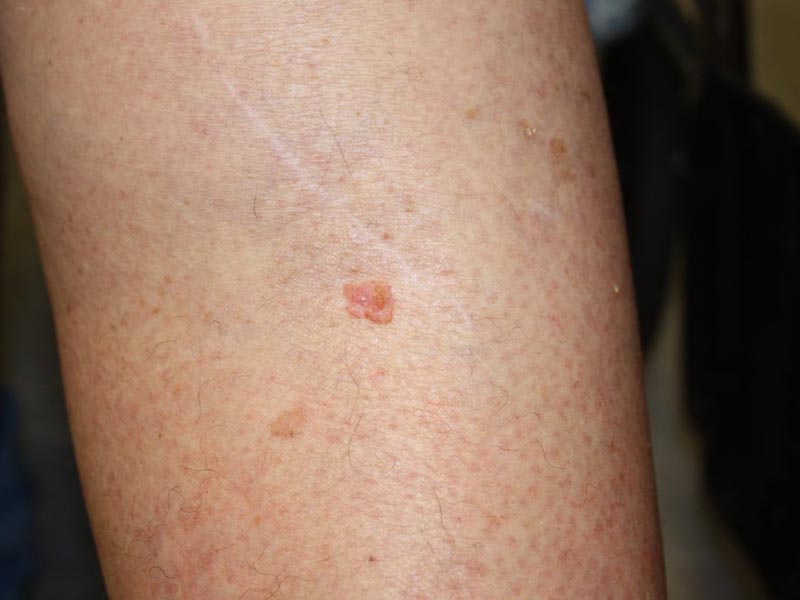
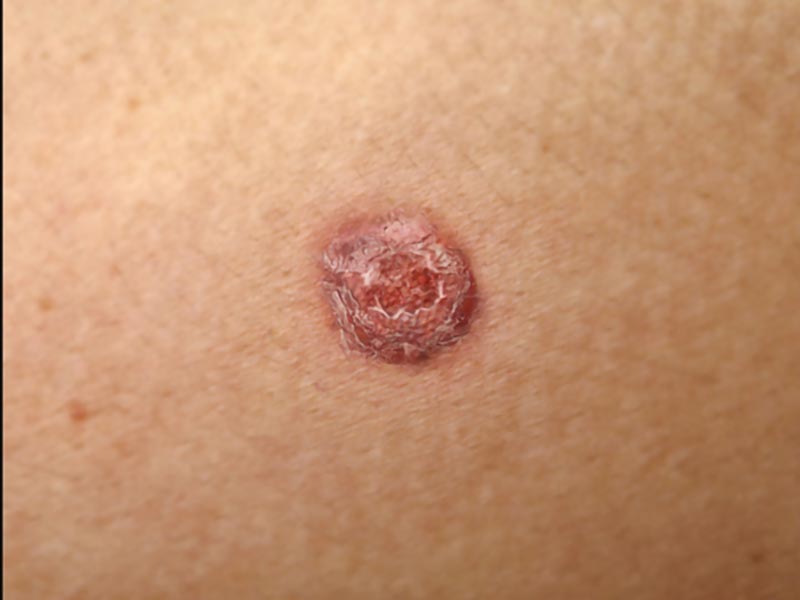
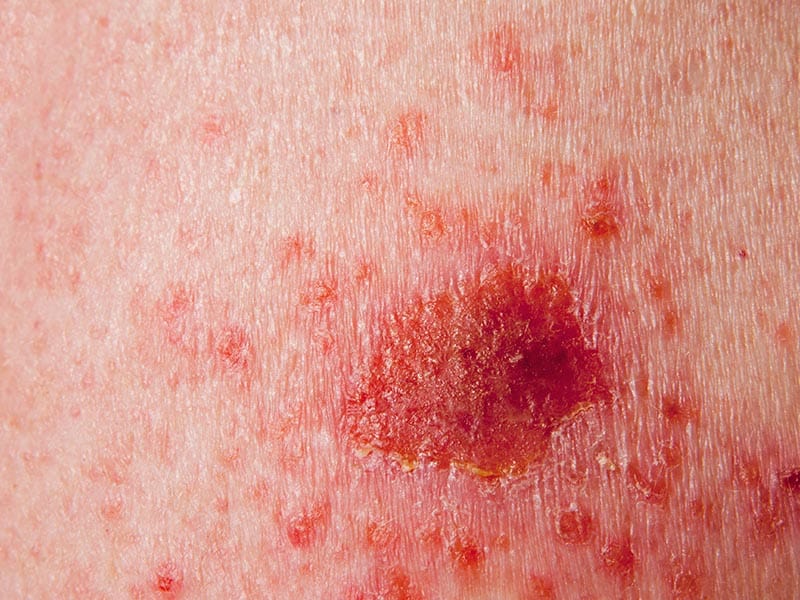
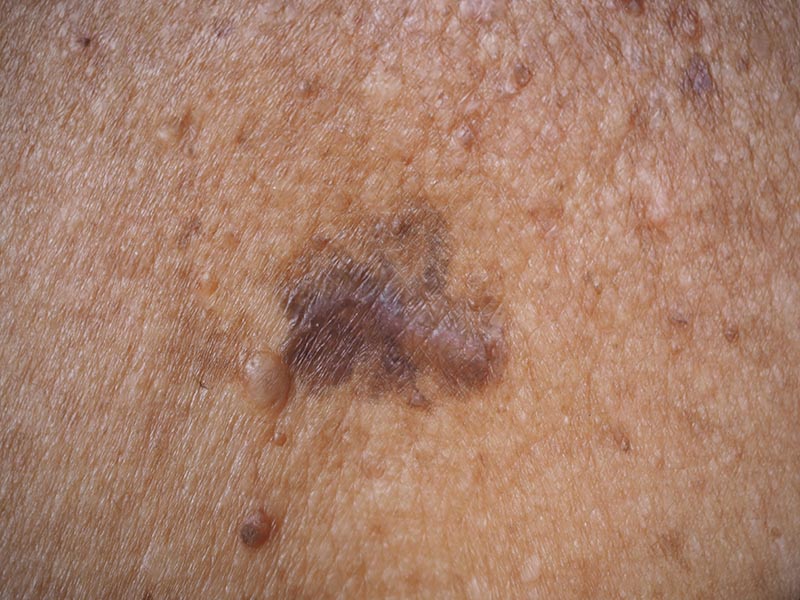
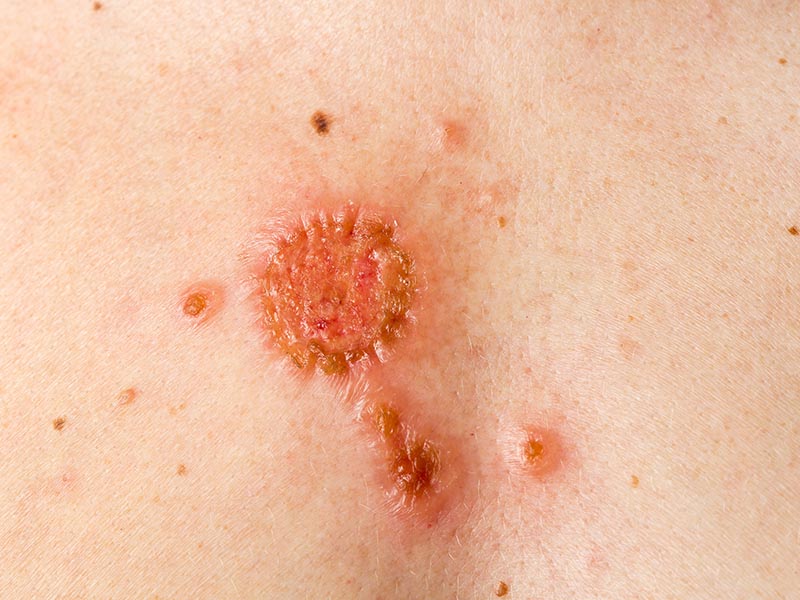
HOW CAN SQUAMOUS CELL CARCINOMA BE PREVENTED?
You can lower your chances of developing squamous cell carcinoma by reducing your exposure to UV light, both in the form of sunlight and sunbeds. When out in the sun, it is important to protect the skin from sunburn by using a high factor sun cream, avoiding the sun during the hottest part of the day and covering the skin when exposed to sunlight. The earlier squamous cell carcinoma is diagnosed and treated, the less likely you are to be left with scarring so checking your skin regularly for signs of skin cancer is really important. If you notice anything on your skin you are worried about, see a consultant dermatologist who will assess your lesion and can carry out treatment if required.
HOW CAN SQUAMOUS CELL CARCINOMA BE TREATED?
Surgery is the main treatment for all non-melanoma skin cancers, including squamous cell carcinoma. This treatment involves cutting away the lesion from the skin, along with a margin of healthy skin under local anesthetic. Depending on the size and location of the surgery, the area can be stitched or a skin graft can be used.
FREQUENTLY ASKED QUESTIONS
HOW MIGHT SQUAMOUS CELL CARCINOMA AFFECT ME?
The rate of growth and chance of spread of squamous cell carcinoma depends on the differentiation:
- Well differentiated SCC tend to grow slowly with a very low chance of spreading
- Moderately differentiated SCC have a slightly higher rate of growth and chance of spreading than well differentiated tumours
- Poorly differentiated SCC often grow rapidly and are highly likely to spread if left untreated
IS SKIN CANCER HEREDITARY?
Skin cancer is not hereditary in the sense that it is passed down through a gene. However, skin type does run in families so those more likely to develop skin cancer are often in the same family.
WHO IS MOST AT RISK OF GETTING SKIN CANCER?
Men are more likely than women to develop skin cancer and it is more common in the elderly.
WHAT FACTOR SUNSCREEN SHOULD I USE?
It is recommended to use a high factor of sunscreen no matter your skin type. SPF30 with a 4-star UVA rating during the summer is recommended for those with paler skin to stop burning but also to help prevent wrinkles and sunspots in those who don’t burn as easily.
DO SUNBEDS CAUSE SKIN CANCER?
Research shows sun beds are a significant risk factor in skin cancer.
HOW CAN I PREVENT SKIN CANCER?
Protecting your skin is, of course, always the best course of action. The easiest ways you can do this include:
· Wearing a waterproof, high level of SPF protection when in the sun
· Use a daily moisturiser with SPF protection
· Avoid the sun when it is at its strongest during the day
· Wear a hat when in the sun
· Sit in the shade
REQUEST A CALL BACK
Please fill in this form and one of our team will give you a call back to arrange a consultation with one of our expert dermatologists.
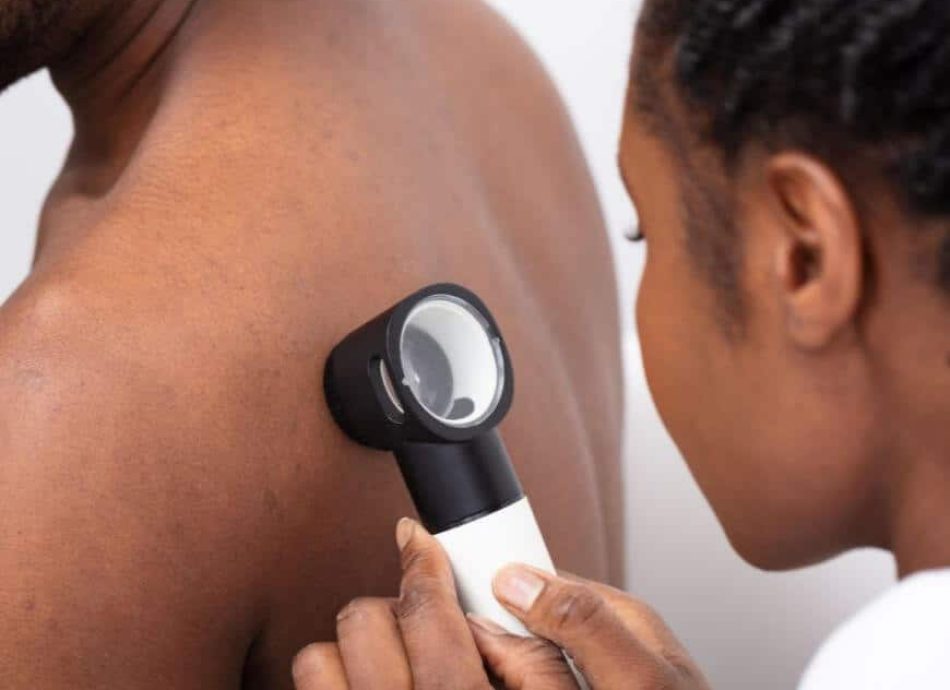
What our Customers Say
WHY TREAT SQUAMOUS CELL CARCINOMA AT CANTERBURY SKIN AND LASER CLINIC?
Here at Kent’s leading private skin and laser clinic, our experts are specialists in all aspects of dermatology, skin cancer, anti-ageing and beauty treatments. We are one of the few skin clinics in the UK where all medical consultations and treatments are provided by specialist doctors with Dermatology experience and laser training.
Canterbury Skin and Laser Clinic is regulated by the Care Quality Commission, ensuring the best level of treatment is provided to you in a safe environment. Our Clinical Lead Dr Mark Hudson-Peacock is a member of the British Association of Dermatologists, the British Laser Medical Association, the British Hair and Nail Society, the European Academy of Dermatology and Venereology and is certified by the Consulting Room. We have won many awards including the WhatClinic Patient Service Award in 2019 and the ghp Healthcare and Pharmaceutical Awards 2019.
Skin Cancer INSIGHTS AND ADVICE

Complete Fall Skincare Guide
Embrace the season of transformation – Autumn. With its vibrant hues, this magical time of year also brings unique challenges for your skin. As the crisp air sets in and the days grow shorter, it’s not only autumn we’re welcoming but also the reminder that
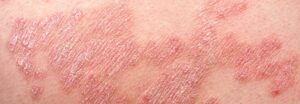
Comprehensive Guide to Understanding Eczema
October is globally observed as Eczema Awareness Month, drawing focus to the people grappling with this challenging skin condition. Our mission, not just in October but always, is to empower you with robust knowledge about eczema‘s root causes, various treatments and useful coping techniques. This
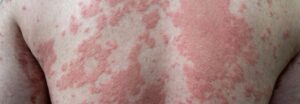
Unravelling Psoriasis: The Focus of Psoriasis Awareness Month
Each August, we commemorate Psoriasis Awareness Month, a time dedicated to elevating public understanding of psoriasis – a chronic skin ailment affecting countless individuals worldwide. The initiative is designed to dispel myths surrounding psoriasis, encourage early detection and advocate for impactful treatment methods. To those








